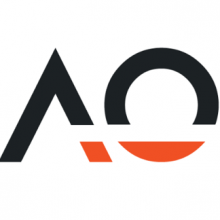
There are 2 Companies in Finland
that provide Go development Services!
Finland’s IT sector is one of the most advanced in Europe and the second-largest IT hub in Northern Europe. The country has been through a strong digitalization process in the early 2000s, and skilled specialists are more and more attracted to discover the digital and tech possibilities the country has to offer.
Discover Top IT Companies in Finland specialized in Go and other related services. Find the best IT service providers for your projects.
Go, also known as Golang, is an open-source programming language created by Google. It is designed for simplicity, efficiency, and concurrency, making it a versatile choice for building a wide range of applications, from web services to system software.
Handpicked companies • No obligation to hire • 100% risk-free
Explore Top Go development Companies in Finland
Filter Go development Companies in Finland by Cities
Find the right tech company near you or from a specific city. Some of the best companies might be located in smaller cities.
Find more Go development companies around the world
TechBehemoths is the world's most advanced and user-friendly platform to match IT Companies with real clients without hustle.
The Finnish IT Industry: Country Profile & Companies
Finland’s IT sector is one of the most advanced in Europe and the second-largest IT hub in Northern Europe. The country has been through a strong digitalization process in the early 2000s, and skilled specialists are more and more attracted to discover the digital and tech possibilities the country has to offer.
Among other things, Finland ranked 1st globally in the happiness index 4 years in a row, which gives another reason for skilled IT specialists to enter the local market, and the native Finnish professionals to remain and continue to develop the country's IT and the entire business ecosystem.
Finland’s contribution to the world's digitalization is huge - they brought the SMS, 5G, and Linux OS. This highlights, even more, the capabilities of Finnish tech workers in the field.
Why Work With Finnish IT Companies
Finnish IT companies made their way through the European IT market in 2008-2010, but at that time the market only started to grow and didn’t provide enough possibilities to Finnish companies to gain a world name. However, in 2015, IT companies from Finland managed to break the market with improved UI/UX solutions, high performance in software and web development, and also numerous startup incubators that relaunched the country’s IT sector and made it one of the most famous in the world.
From Finnish IT companies and digital agencies, you can expect everything from excellent and outstanding services. The 3400+ IT companies provide high-quality services for the local market via public-private partnerships, and for the international market via BPO, and direct services due to the open European Market.
Most Finnish IT companies are SME’s which are supported and facilitated by the government and local policies. In Finland, companies usually join IT parks and tech communities that help businesses find and benefit from local digital services.
What You Should Be Aware of When Working With Finnish IT Companies
According to Glassdoor, the average annual salary in the Finnish IT sector is 92,290 euros, which is also makes it higher than the average salary and hourly rate, which is 44 euros. In these regards, you may want to pay attention to prices before working with a digital agency from Finland.
Everything else, from project management and dev skills, should not be a reason for concern since Finnish skilled workers are enough, and everywhere in the local companies.
Are Finnish Companies Reliable?
The most well-known thing about Finnish IT companies is their high-quality services and products. This is why reliability is not a question for local digital agencies and companies from Finland. Also, due to market stability and reliability, foreign investors and IT companies are choosing Finland as their next location for new offices.
How Does the Finnish IT Sector Relate to the Neighboring Countries?
Across Europe, there are traditional IT sectors and more innovative ones. Finland focuses more on innovation and tries to bring digitalization to new sectors of the economy. There are eight pillars of the Finnish digital economy, and all of them connect each part of the economy and society to the web:
- Digital Trust
- AI
- Intelligent Connectivity
- New Space Economy
- Smart Mobility
- Data Centers
- Retail Tech and Ecommerce
- Financial Technology.
Some of these pillars are present in the traditional IT sectors such as FinTech, E-commerce, and Data Centers. The neighboring Sweden, for example, focuses more on e-commerce and FinTech, but lacks other digital directions that Finland has.
The latest Finnish sector that goes through digital transformation is the medical sector. Finnish digital agencies and IT companies focus now on providing a comfortable place for doctors and patients using digital technologies. This comfort touches aspects like interior design, acoustics, access to information, entertainment, and extends up to neural networks and involves AI in the surgery processes.
What is Go and what are its benefits for your projects?
Go, also known as Golang, is an open-source programming language created by Google. It is designed for simplicity, efficiency, and concurrency, making it a versatile choice for building a wide range of applications, from web services to system software.
More than 363 verified IT companies leverage Go in their development projects. These companies range from startups to tech giants like Google, Uber, and Dropbox. They appreciate Go's speed, reliability, and ease of use for building scalable and performant software.
Go service providers rely on various tools and technologies to enhance their development process. Some commonly used tools include the Go compiler, which transforms Go code into executable binaries, and the Go standard library, which offers essential packages for building applications. In terms of deployment, containerization technologies like Docker are frequently used to package Go applications for consistency and portability.
You may be wondering, how is Go Different from C, Rust, and Java. So, below we’ll try to show you more about the differences that exist between them:
-
Go vs. C: While both Go and C are low-level languages, Go offers modern features like garbage collection and memory safety, which simplify programming. Go is also more concise and expressive than C, making it easier to read and maintain. But if you think your business needs companies that also specialize in C, you can find them on this page
-
Go vs. Rust: Rust emphasizes memory safety and control without sacrificing performance. While Go offers simplicity and readability, Rust provides fine-grained control over memory and is suitable for systems programming with a focus on safety.
-
Go vs. Java: Java is a high-level language often used for building enterprise-level applications. It relies on a virtual machine (JVM) and is known for platform independence. Go, on the other hand, compiles native code, offering better performance and efficiency for certain use cases.
Languages related to Go in terms of use cases and features include Python, Ruby, and Node.js. These languages, like Go, are suitable for building web services and backend applications and are known for their developer-friendly features. If you need these programming languages in addition or instead of Go, just click on their corresponding words above to find verified vendors providing those services.
When selecting IT companies that use Go for your project, consider factors such as the company's experience with Go, their portfolio of past projects, client references, and their understanding of your specific project requirements. Look for companies that align with your project's complexity, scalability needs, and budget.
Go service providers are essential for various project types, including:
-
Web Services: Go is well-suited for building RESTful APIs and microservices due to its excellent performance and simplicity.
-
Networking Applications: Go's concurrency support makes it ideal for developing network-related software such as servers and proxies.
-
Cloud Applications: Go's efficiency and speed are valuable for building cloud-native applications and serverless functions.
-
System Software: Go can be used for developing system utilities, command-line tools, and operating system components.
Go is a versatile language, and its speed, simplicity, and efficient concurrency model make it suitable for a wide range of projects, making it an excellent choice for modern software development.

